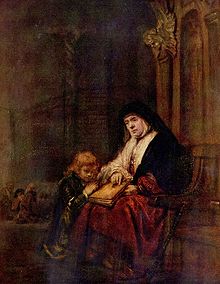Bible: What Does 1 Thessalonians 1-3 Teach Us About Spiritual Leadership?
The Apostle Paul

The Site Where the Church Meets

Godly Qualities
view quiz statisticsThanksgiving for a Healthy Church
1 Thessalonians 1
Paul, Silas, and Timothy send their greetings to the church in this Macedonian port city; they pray that God’s grace and peace may come to this assembly that the apostle notes abides within the "sphere" of the Father and the Son (“in God the Father and the Lord Jesus Christ”) [v. 1].
[Silas’ longer name is Silvanus.
Replacing Barnabas (with whom Paul had a disagreement regarding John-Mark), this faithful servant joined Paul on the apostle’s second apostolic journey (Acts 15:22-18:5) [Ryrie, New Testament Study Bible, 367]].
As is almost invariably his custom, the apostle begins the body of an epistle by thanking God for those receiving His word (v. 2; cf. Rom. 1:8; 1 Cor. 1:4; Phil. 1:3; Col. 1:3).
[In II Corinthians and Ephesians, the apostle blesses God after his salutation.
Only in the book of Galatians does he dispense with a blessing and immediately express dissatisfaction with his readers’ behavior.]
When he intercedes for and remembers the Thessalonian church, he thanks God for three specific character qualities that these saints manifest: their “work of faith,” “labor of love,” and “patience of hope” (v. 3).
[Paul presents this young church as a model assembly of the first century (see 1:7).]
Addressing them as “beloved brethren,” the apostle acknowledges God’s choice of them to eternal salvation as another reason he gives thanks to the Lord (v. 4).
Paul recalls God’s special working through them (that is, the apostle and his associates) among the Thessalonians as they preached the gospel in the power of the Holy Spirit and with strong conviction (v. 5).
After hearing the message of the cross and seeing the godly conduct of the apostolic band, the Thessalonians joyfully became disciples of Christ and of the apostolic band.
[Christ-likeness, a quality the Holy Spirit produces, will characterize preachers with powerful ministries.]
Paul acknowledges that, despite encountering considerable opposition to their conversion to Christ, the Thessalonians have progressed spiritually and have become joyful examples to all Greek believers (vv. 6-7).
He lavishes commendations upon this church for faithfully spreading the gospel throughout their region and beyond, noting that he sees no need to admonish them about disobedience or any other fault (v. 8).
Paul reports the testimony of peoples in other lands who declare the Thessalonians’ complete transformation from idol-worshiping pagans into fervent servants of “the living and true God” who await the imminent Rapture: the parousia of the resurrected Christ who will save them from the Great Tribulation (“the wrath to come”) [vv. 9-10].
Proof of Authenticity
view quiz statisticsI Thessalonians 2
Again addressing the Thessalonians as brethren, Paul refers back to the first time he and his apostolic representative (Silas) met with them, reminding them how his ministry team conducted themselves among them during that worthwhile visit (“our coming to you was not in vain”) [v. 1].
The apostle recounts to them that, despite being persecuted in Philippi (Acts 16:12-40)—a fact that he assumed was common knowledge among the Thessalonians—, he boldly proclaimed the gospel to them also amid more opposition (v. 2).
In verses three through six Paul defends his ministry not only by denying that certain unsavory elements characterized his preaching, but also by affirming that his message originated in God.
First, he contends that he did not base his exhortations upon erroneous doctrine; he did not espouse sexual immorality, nor seek to trick his audience (v. 3).
Furthermore, Paul asserts that, because God entrusted him to speak His message, he did not desire to please men but to secure the Lord’s approval of his heart’s attitude (v. 4).
Second, the apostle again reminds the Thessalonians of another fact they knew about him; that is, he never tried to persuade anyone with insincere speech (v. 5a).
Realizing that they could not know his heart, Paul calls upon God to testify before them that the apostle did not seek to fleece audiences (v. 5b).
Third, he avers that did not take advantage of his high calling to demand financial support from any church (v. 6).
Next, Paul presents in verses seven through twelve how he and his associates conducted themselves in a godly manner toward this church.
Instead of demonstrating authoritative self-assertiveness, the apostle approached the people as gently as a mother does when she nurses her children (v. 7).
Baring his pastoral heart, Paul confesses his great love and affection for them, communicating his willingness to share with them not only the gospel, but also his own life: that is, his time, struggles, joys, lessons learned, etc. (v. 8).
Again, he urges his Thessalonian brethren to recall how hard and how long they worked in a “secular” job (tentmaking? cf. Acts 18:3), so that they would not have to receive ministry support from them (v. 9).
Paul stresses that both they and God can testify to the godly example of the apostolic band, who instructed them how they should live righteously as divinely-called heirs of Christ’s glorious kingdom (vv. 10-12).
[The apostle strings together adverbs (“how devoutly and justly and blamelessly”) and verbs (“exhorted, and comforted, and charged”) to demonstrate how much he wanted to emphasize how well they behaved themselves.]
The Word of God

Godly Recipients of Paul's Message
Besides praising God for their scintillating testimony (see 1:2-7), Paul also continually thanks Him for the Thessalonians’ godly reception of his message as God’s word, seeing that that powerful truth produced spiritual change in their lives (v. 13).
He is mindful of the fact that, as the result of converting to Christ, the Thessalonians have suffered persecution from their Greek neighbors just as their Judean brethren had endured mistreatment at the hands of the Jews (v. 14).
Paul notes that these zealous Jewish leaders were responsible not only for murdering the Messiah and the OT prophets, but also for persecuting the apostle himself and his associates (v. 15a).
Their prohibitions to preach the gospel displease God and show hostility toward everyone who would hear the message and receive salvation, especially Gentiles (vv. 15b-16a).
The apostle comments that God’s wrath has fallen (and will continue to fall) upon these persecutors whose actions continually bring judgment (v. 16b).
Paul asserts that he and his associates have truly wanted to visit the Thessalonians, but that Satan has continued to prevent that glad event (vv. 17-18).
[Ryrie seems to suggest that the ability of the Thessalonian Jews to secure a promise from Jason that Paul would not return to their city constitutes Satanic activity (New Testament Study Bible, 369).]
The apostle expresses his belief that their presence at the Rapture will represent his greatest joy, hope, and crown (vv. 19-20).
[Paul greatly valued the prospect of seeing people whom he had won to and nurtured in the Lord one day standing in Christ’s presence.]
Timothy (with grandmother)

Paul's Location
view quiz statisticsI Thessalonians 3
Realizing that he was not going to able to visit them personally, a disappointed Paul relates that he decided to stay alone in Athens and send Timothy to Thessalonica as his representative to monitor their spiritual progress and to encourage them to keep the faith.
He wanted to make sure that they understood his prior message—the one saying that he would experience persecution (vv. 1-5; cf. Acts 9:16; 14:22).
[This section elicits several observations:
(1) Paul referred to himself as “we,” unless he included Silas in that designation.
He had sent Timothy, another member of the apostolic band, to Thessalonica;
(2) As was his custom, the apostle strings together titles to identify an associate; here, he called Timothy “our brother and minister of God, and our fellow laborer in the gospel of Christ” (v. 2; cf. Phil. 2:25; Col. 4:7);
(3) Paul reiterated that he “could no longer endure ‘it’” in verse five (cf. vv. 1, 5); the term “it” must refer to the frustration of not being able to visit them and learn of their spiritual condition;
(4) Paul was often concerned that “our labor might be in vain” (v. 5; cf. Gal. 2:2; Phil. 2:16).]
The apostle happily reports that Timothy brought him good news regarding the Thessalonians’ spiritual growth and their desire to see him again (v. 6).
This communiqué greatly comforted Paul as he continued to weather storms (v. 7); he relates his hope that their perseverance in the faith would keep him this way (v. 8).
Paul finds it difficult to thank God enough for all the joy the Thessalonians’ faith brings him, and he expresses his intense desire to visit them again and instruct them further (vv. 9-10).
Before he begins the last section of his epistle that deals more specifically with eschatological issues (4:13-5:11), he prays that God would send him to Thessalonica at last (v. 11), and that He would enable the saints there to abound in brotherly love, so that they would stand blameless before Christ at the Rapture (vv. 12-13).
© 2014 glynch1








